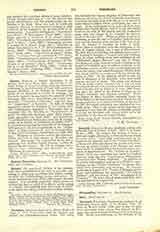

Cornet, NICOLAS, a French theologian, b. at Amiens, 1572; d. at Paris, 1663. He studied at the Jesuit college of his native place, took the doctorate of theology at the University of Paris, 1626, and soon became president of the College de Navarre and syndic of the Sorbonne or faculty of theology. In this latter capacity he reported to the assembly of the Sorbonne, 1649, seven propositions, two taken from Arnauld‘s “Frequente Communion” and five from the “Augustinus” of Jansenius. In spite of strong opposition created by members of the faculty who, with Saint-Amour, appealed to Parliament and by Jansenists like De Bourseis in “Propositions de gratis, in Sorbonnae facultate prope diem examinand, propositae Cal. Junii 1649”, and Arnauld in “Considerations sur l’entreprise faite par M. Cornet, syndic de la faculty, en l’assemblee de Juillet 1649”, he succeeded in having the Assembly of the Clergy of 1650 denounce the five propositions of the “Augustinus” to Pope Innocent X, who condemned them, May 31, 1653 (Denzinger, Enchiridion, nos. 1092 (966) sqq.). Maligned by Jansenist writers like Hermant, Cornet was held in high esteem by Richelieu and Mazarin. His eulogy was pronounced by no less a personage than Bossuet himself (Oraison funebre de Messire Nicolas Cornet). He left no writings, but is said to have collaborated with Richelieu on the “Mythodes de controverse”.
J. F. SOLLIER

